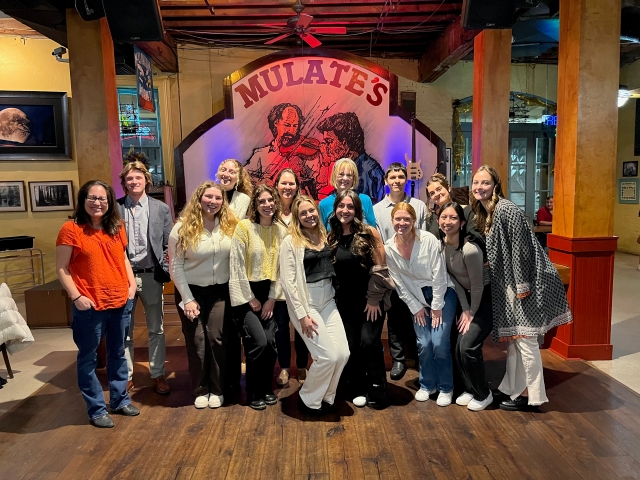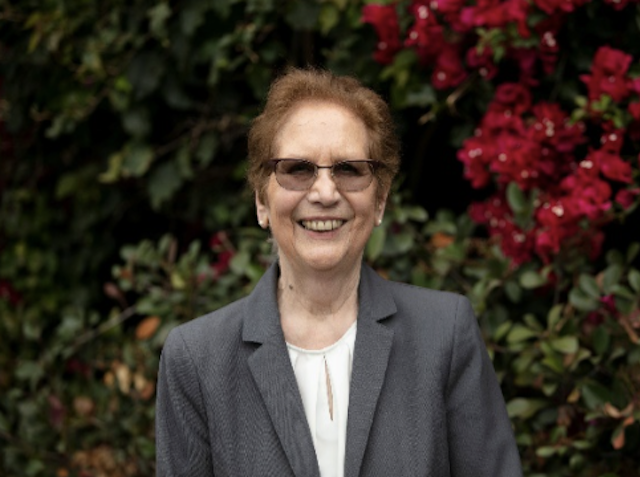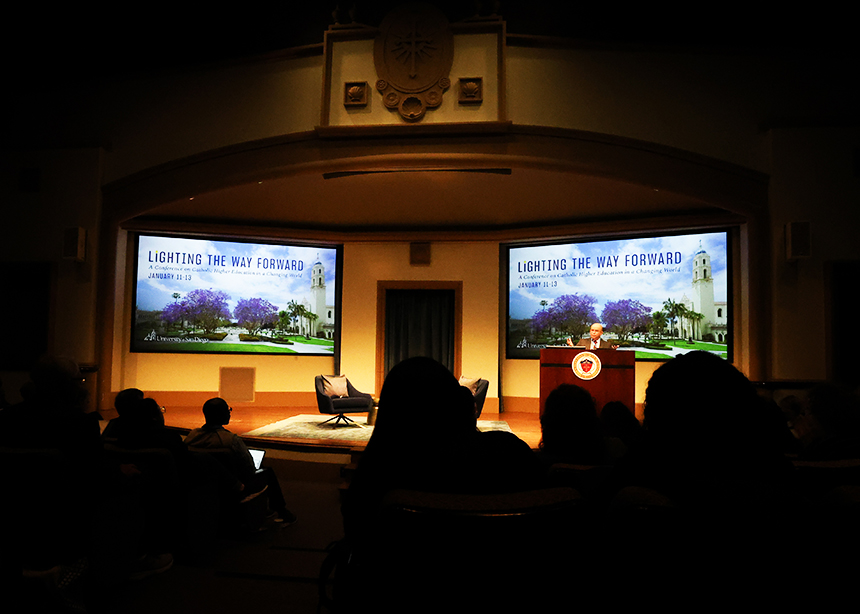History Professor Heightens Huntington's Disease Awareness Via Film Screening
While there have been many important moments in Kenneth Serbin’s life, May 18, 2017 ranks right up there as a life-changer for the veteran history professor at the University of San Diego. He spent it in Italy, alongside his wife, daughter and mother-in-law. More specifically, they visited the Vatican. Even better, they were present in an auditorium as part of an exclusive audience with Pope Francis. Excitedly, the Serbin family shook hands and briefly greeted him.
That would be a memorable day for just about anyone. But on this particular day, connecting with Pope Francis was, aside from a cure, the best possible medicine for most of the attendees. That’s because the majority of those who gathered there had Huntington’s Disease (HD), were caregivers for family members with the deadly disease or, in the case of Serbin, he is an HD gene carrier. His late mother passed away at age 68 due to the disease.
“It is a fatal genetic disorder that causes the progressive breakdown of nerve cells in the brain. It deteriorates a person’s physical and mental abilities, usually during their prime working years and has no cure,” defines the Huntington’s Disease Society of America website.
Serbin describes HD by its symptoms: physical (involuntary movements), cognitive (loss of ability to speak and reason), and psychiatric (depression and behavioral and mood disorders). The HDSA website’s description provides a clear picture: “The symptoms of HD are described as having ALS, Parkinson’s and Alzheimer’s — simultaneously.”
“There is no effective treatment. There are drugs, but none of the approved drugs do anything to stop the progression of the disease or the root cause, which is the genetic defect,” Serbin said in 2017.
Today, the hope for a medical cure continues as companies valiantly do intensive research. Serbin has been an HD patient advocate the last 20-plus years, writing a blog, working within the San Diego community to raise HD awareness and to “end the shame of this disease.”
The visit with Pope Francis — and his inspired speech to the audience that was broadcast worldwide — was a significant step in terms of international awareness and curbing the shame associated with it. To Serbin, the Pope’s meeting with HD sufferers and their families was powerful.
“He helped start a new consciousness about the disease, provided new awareness about HD,” Serbin said. “Without the Pope doing what he did, we wouldn’t be having this event tonight.”
Serbin’s words came shortly after he hosted a Feb. 19 film screening in the Manchester Hall auditorium for Dancing at the Vatican. The 38-minute documentary relives this life-changing day, complete with narration from former NBC-TV reporter Charles Sabine, who himself comes from an HD-afflicted family and is also a global advocate. The film provides background on some of the Latin America HD sufferers and their family caregivers. Most on the trip had not been outside of their small villages and had never flown on a plane before.
The Manchester Hall auditorium was filled with USD students, numerous biotech company representatives and community members for the film screening, which was sponsored by USD’s Frances G. Harpst Center for Catholic Thought and Culture. Serbin was then joined by Sabine and neuroscientist, Dr. Ignacio Munoz-Sanjuan, for a question-and-answer session.
The backstory of a few of the attendees definitely brought tears to the eyes and emotions to the forefront as the film played. The thrill of HD sufferers meeting Pope Francis, thus having the first world leader to publicly recognize HD before the largest known gathering of HD sufferers in one place made it a very memorable moment.
“To see (the film) from this perspective now reminds me of the importance of what Pope Francis has been preaching, which is mercy,” Serbin said. “Mercy for these families, the end of the stigma for these families, the end of discrimination and the fact that we all need to lend them a helping hand. The pope lent them a helping hand.”
He did so by sharing three important words.
“For far too long, the fears and difficulties that characterize the life of people affected by Huntington’s Disease have surrounded them with misunderstandings and barriers, veritably excluding them,” said Pope Francis in his 2017 speech. “In many cases the sick and their families have experienced the tragedy of shame, isolation and abandonment. Today, however, we are here because we want to say to ourselves and all the world: Hidden no more! Oculta Nunca Mas! Mai Piu’ Nascosta!”
Serbin went public telling his HD story in 2012 and it was published by The Chronicle of Higher Education. Since 2005, Serbin has advocated for HD awareness and information through At Risk for Huntington’s Disease, a blog he writes under the pseudonym, Gene Veritas, translated as “The truth in my genes.”
“The College (of Arts and Sciences) website did (the original) article on me. My colleagues were shocked, but everybody has shown solidarity. Colleagues have gone on the Hope Walk with me, I’ve had former students attend HD events and it’s uplifting to have them there,” he said.
Serbin continues to look for ways to raise awareness, seeks new information about research leads, follows companies and their attempts to find a medical breakthrough and a cure.
Dancing at the Vatican provides another avenue for awareness. Wednesday’s film screening was only the third one worldwide since its July 2019 Los Angeles debut. It was shown in London February 5. It is scheduled to be shown in Glasgow, Scotland in May and South America after that. The film is expected to be available online for everyone to see later this year.
— Ryan T. Blystone
Contact:
USD News Center
news@sandiego.edu
619-260-4600 x 6652




